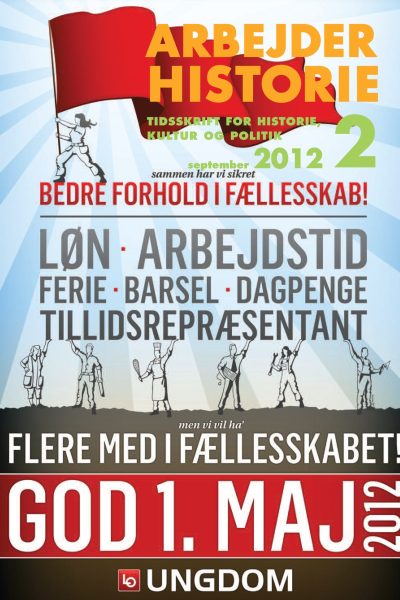Talekor mellem to verdenskrige
DOI:
https://doi.org/10.7146/arbejderhistorie.vi2.145016Resumé
Astrid Orsleff Hansen, xxx, Arbejderhistorie 2/2012, s. 57-74.
From the mid-1920s as an all-encompassing part of its cultural and campaigning work the Danish social democratic youth in the DsU
embraced the German speech form of the chant. The chants were a poetic, scenic and collective presentation of the shared wishes
and demands of the workers. Together with a whole number of other cultural and agitational forms the chants were to play their part in establishing a special socialist culture aimed at the workers. The idea received its ideological manifestation in Julius Bomholt`s book
“Workers` Culture” from 1932, but its practical manifestation was expressed in the cultural initiatives implemented by DsU members in the inter-war years. The chants and the other socialist cultural projects were downgraded with the consensus seeking course the state-bearing (holding governmental power) social democracy presented in the mid-1930s in response to the tense domestic and international political situation. With the slogan “Denmark for the People” the aim was to create a broad popular backing around democracy and the state as a strategy for the survival of the nation, something that was also underpinned culturally. This meant that
the idea of a specific workers` culture was marginalized also in later history writing. On the basis of ethnographical state and life style theory the spread and meaning of the chants in the DsU during the inter-war years is revealed. The investigation is based on empirical studies. This goes beyond the concept of class, which has typically been used in studies of workers` culture in the inter-war period, to view the field of study in an overall perspective of everyday life, society and state.
Downloads
Publiceret
Citation/Eksport
Nummer
Sektion
Licens
Copyright (c) 2012 SFAH og forfatterne

Dette værk er under følgende licens Creative Commons Navngivelse – Ikke-kommerciel – Ingen Bearbejdede Værker (by-nc-nd).


